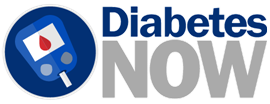Dr Richard Bebb, MD, ABIM, FRCPC, Endocrinologist discusses What is your Prevalence of Diabetes.
What is Local Endocrinologist
A local endocrinologist is a medical doctor who has taken additional education and training in endocrinology. Endocrinology is the study of hormones, which are responsible for many of the body’s activities, including breathing and growing. Blood glucose monitoring is an important part of any diabetes management plan. If you have diabetes, it’s important to check your blood sugar levels as prescribed by your doctor. Endocrinologists treat mental wellbeing , emotional wellness , physical wellness , spiritual wellness amoung other things.
If you have type 1 or type 2 diabetes, you will probably work with a local endocrinologist to manage insulin, diabetes medications, blood glucose and weight. During visits with your primary care provider or endocrinologist, he or she will perform an A1C test to measure the glucose (blood sugar) in your blood by checking hemoglobin. Your physician may also take blood or urine samples to assess kidney, liver and thyroid function.
Proper diabetes management is essential in preventing conditions such as diabetic foot problems, diabetic retinopathy, and diabetes-related dental problems. Your local endocrinologist may work with your local family physician to help you manage your diabetes treatment plan. Type 1 diabetes treatment includes insulin, blood sugar monitoring, diet and exercise changes and diabetes medication. SGLT-2 inhibitors work by a different mechanism. They tend to promote some weight loss and lower blood sugars to a greater degree—to maybe up to almost one percent sometimes or even more.
Often seeing a Endocrinologist or local family physician in conjunction with a registered dietitian and athletic therapist is a great option to take control of this condition. There are two main types of diabetes: type 1 and type 2 diabetes. If you have type 1 diabetes, your body doesn’t produce insulin. Insulin is secreted by the pancreas when food is absorbed, so as food accumulates in the blood in someone with type 1 diabetes, sugar levels get too high.
When you begin diabetes treatment with an insulin pump, it may take some time for you and your diabetes care team to determine the proper basal and bolus insulin doses. It’s a good idea to take some training from a diabetes educator to learn how to use your insulin pump.
The first thing would be to meet on a regular basis to talk about blood pressure control and ideally a blood pressure control of under 100 and 30 on 80 is an ideal number to minimize complications. The second thing that doctors will want to do is look at what the cholesterol levels are to minimize the risk of cardiovascular disease.
The Path to Understanding Diabetes Starts Here No matter where you are in your journey, here's where you need to be. American Diabetes Association®.
Traditionally, you prick your finger, put a drop of blood on a test strip, and insert it into a blood glucose meter. The glucose in your blood reacts with the chemicals in the strip. Your doctor will work with you to figure out which type of insulin is best for you depending on whether you have type 1 or type 2 diabetes, your blood sugar levels, and your lifestyle. He or she will also show you how your medication and lifestyle are affecting your blood sugar levels
Postprandial means after a meal, and is the elevation of glucose after we’ve eaten. When we digest food, it goes in the blood, and the first thing we have to do is to store it in our cells. Normally, after we eat our glucose goes up for an hour or two and then slowly comes back to where it’s normal because of the action of insulin.
If you jam your insulin injection into your tissue, you increase your risk of hitting muscle. You also then squish your fat or subcutaneous tissue, and that can affect the way that you are absorbing your insulin. Instead of jamming in your insulin injection, think about sliding it in as you would into butter. How you inject your insulin is as important as the insulin that you inject. So, it’s important to know the steps that should be properly followed.
If you have type 1 diabetes, your body doesn’t produce any insulin, so you will need to take it daily. Insulin is secreted by the pancreas when food is absorbed, so as food accumulates in the blood in someone with type 1 diabetes, sugar levels get too high. If you have type 2 diabetes your pancreas does not produce enough insulin, or your body does not properly use the insulin it makes.
Before you give your insulin injection, the first thing that you should do is gather your supplies and wash your hands. The next step is preparing your insulin pen for injection. It’s very important that you use a new needle each time that you’re going to do an injection and prime your pen.
Obesity is an incredibly common health condition that occurs when a person has accumulated so much body fat that it can negatively affect their health. According to studies, nearly 30% of people worldwide are overweight or obese – it’s become an epidemic
The physicians are in good standing with the College of Physicians and Surgeons of Canada, and the Canadian Diabetes Association and the Canadian Medical Association
Useful Resources
Canada
Royal College of Physicians and Surgeons of Canada



